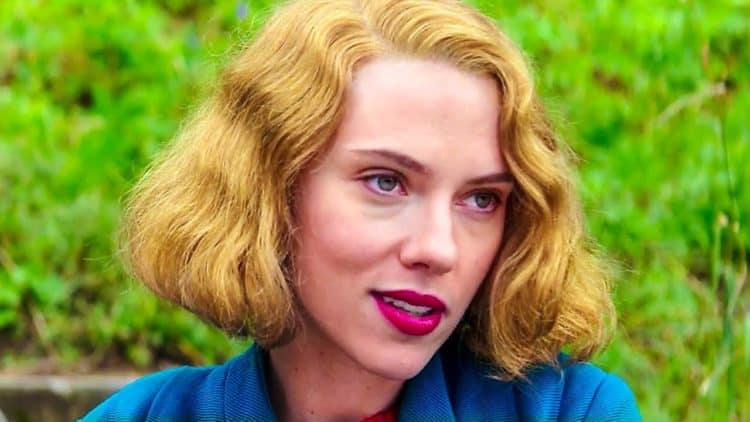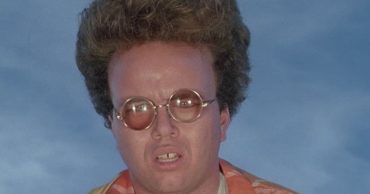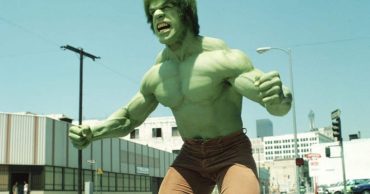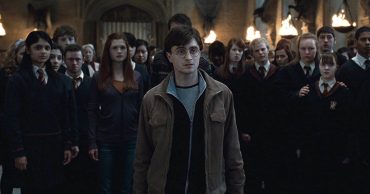
Jojo Rabbit is a special film. The dark comedy-drama focuses on World War II, namely the Nazis and the title character of the film. Now, Jojo comes to understand peace and love as the film goes on; however, it’s certainly not an easy task. First, the people he’s taught to hate, the Jewish, are currently living in his attic. Add in the fact that his best friend is an imaginary Adolf Hitler then that complicates the situation even further. However, part of that peace and love comes from his mother, Rosie Betzler, who happens to be a rebel fighting against the Nazis. Rosie is the reason that the Jewish girl, Elsa, exists in their home; however, her battle against the Nazis ends up seeing the loving mother executed offscreen.
What makes Rosie such an interesting character is that she’s the complete opposite of Jojo, at least in terms of beliefs. Jojo means well; however, his mind has been poisoned over the notion that Jews are evil and the best course of action is to kill everyone in sight. Part of the reason that he’s so affected by the Nazi ideology is that he views Hitler as a father figure in some sort of way. The key thing about Jojo Rabbit is that his father, Paul, is missing. Jojo doesn’t necessarily resent his mother for this, but there is a strain and disconnect between him and Rosie. The importance of a male figure is vital in a child’s relationship, especially a young man. Denzel Washington said it best, “If the father is not in the home the boy will find a father in the streets.” Jojo’s guidance comes from the fact that Hitler has more in common with the young kid than his mother. Only a man can guide a boy to truly be a man, and Hitler has those qualities that his mother can’t truly touch upon.
Rosie being a fascinating character isn’t just because she’s a rebel against the war at hand, but it documents the struggles a single mother can have raising a boy. It would be great to get from her perspective how she views life raising a son who has been ingrained into the Nazi culture. How is this affecting her mentally? She’s trying to create a safe and loving environment for Jojo, but it clearly has to eat up inside her behind closed doors that her son could grow up to be the type of person that she despises. A spin-off documenting Rosie and Paul’s marriage could shed some light on their dynamic and drastic effects of her husband missing without a trace. Was she terrified? Was she secretly happy? Is her heart broken that she’s unable to truly get the same connection with Jojo that he did with Paul? A feature focusing on her perspective has so many juicy layers attached that it doesn’t feel that Rosie is suited as a supporting character. Of course, her cause as a secret activist should be spotlighted as well. It was an interesting choice to never showcase Rosie’s world, even for a brief second.
The story is about Jojo so it makes sense that we’re not given time to see Rosie outside of the house and the film does it in a clever manner. We’re so busy seeing Jojo’s training that the question of why Rosie isn’t by her son’s side doesn’t necessarily need to be raised. However, perhaps thrusting the kid into her activist would’ve helped Jojo understand why the Nazis are the bad guys in this war. Given her grim ending, it’s understandable she kept him away from the activist life for possible fear of death. Or worse, Jojo could’ve ratted her out to the Nazis and she would’ve suffered death at the hands of her own son. There’s so many directions to go in terms of following the perspective of Rosie in that you don’t particularly need to change much of Jojo Rabbit. The events that occur in the film can still take place, but we see things from the perspective of Rosie’s eyes, not Jojo. How does this seemingly sweet and caring mother get entangled with this violent war in the first place? What swayed her decision to join the fight against Nazis? Was it the fact that Jojo is forced to train at such a young age? Or does it have to do with her missing husband? Perhaps there’s a side adventure where Rosie goes on a search for Paul and clues lead up to the notion that Nazis had a part in his disappearance. Whatever the case may be, Rosie is a supporting character who can easily carry her own feature.
 Follow Us
Follow Us




